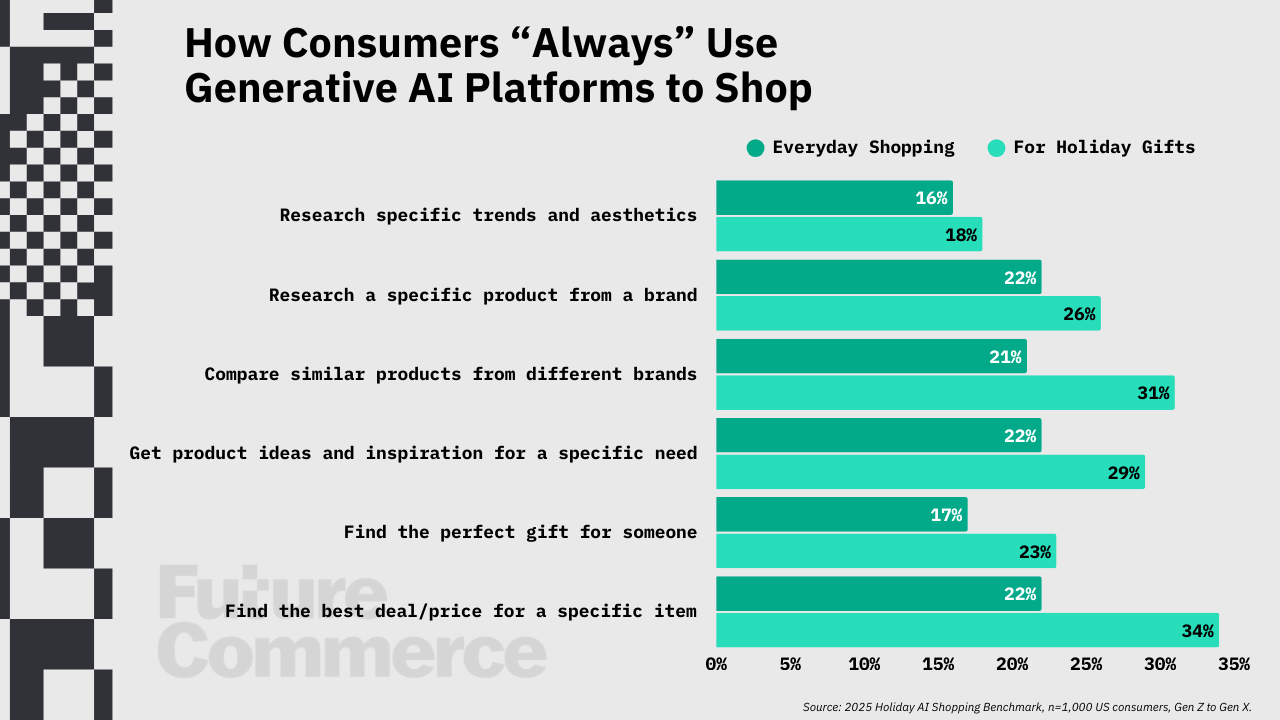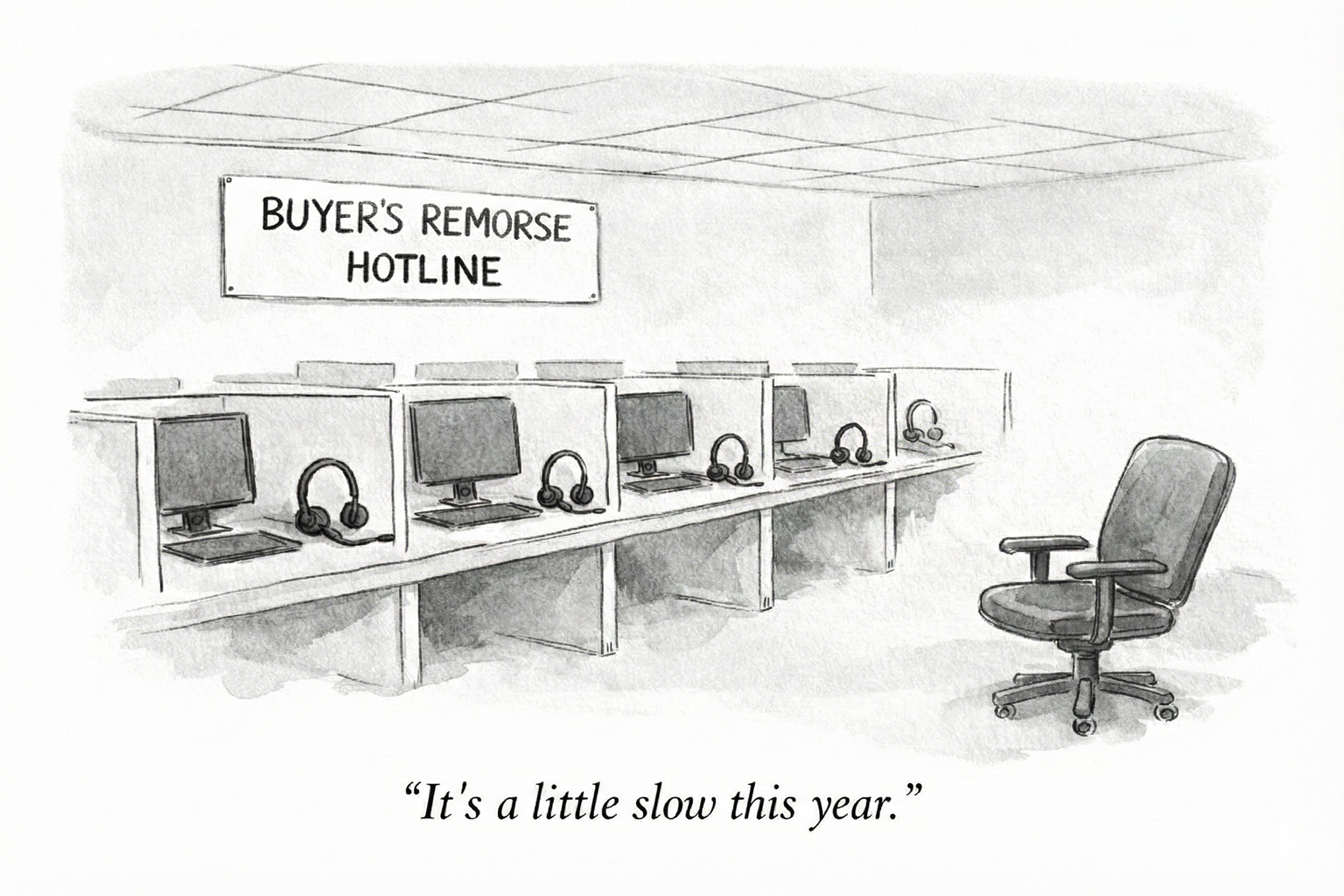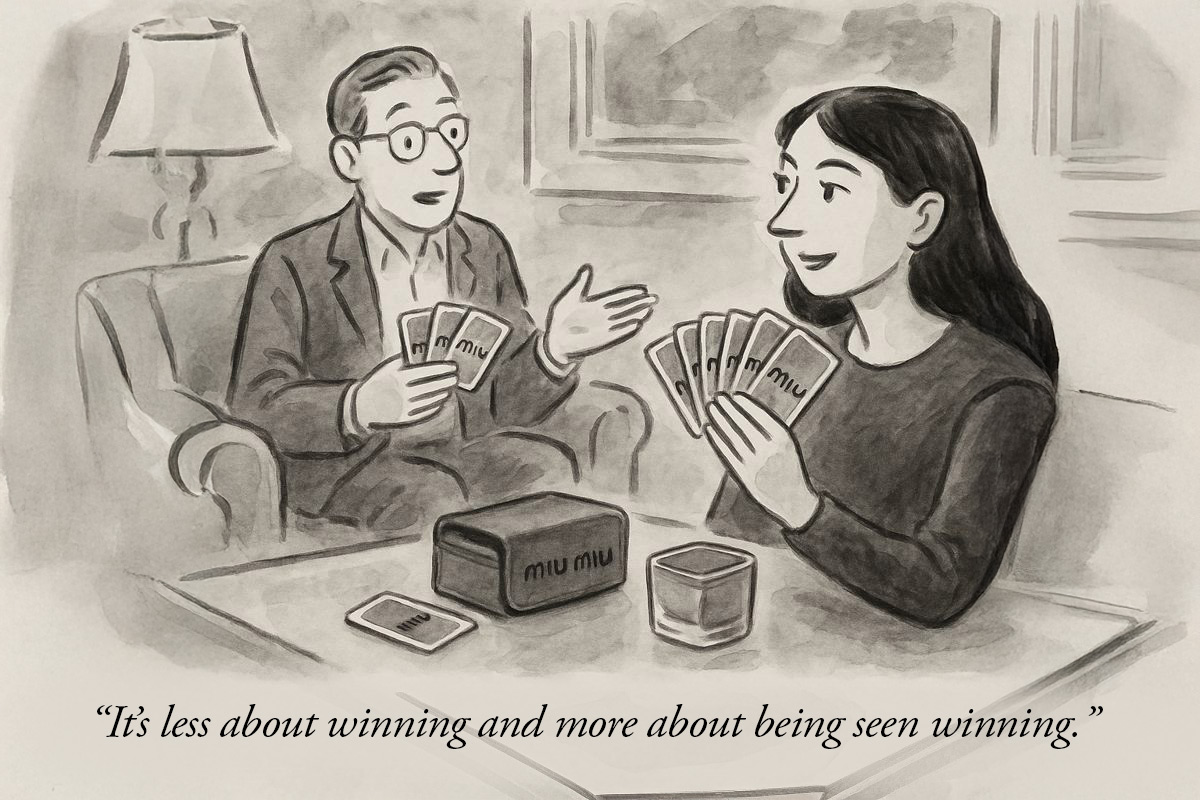.png)
Two Can Play at This Game

We’re 7 days away from our VISIONS: Volume IV report release. Last year, thousands of you engaged with our annual trends report — this year it’s deeper, bigger, and badder than ever.
Hit the easy button — pre-save the report by clicking right here. That’s it. One click, and we’ll send it to you, top-of-inbox, the day of launch.
This morning, Shopify took another shot across the bow of Amazon. Soon, Shop Pay will be unbundled from the Shopify platform, available for all businesses, regardless of commerce platform.
Why does this matter? Three C’s encapsulate how I see this being disruptive: Consumers, Competition, and Capital.
Consumer channels are changing. Shopify is slowly becoming a household name with the consumer — especially with creators like MrBeast and Emma Chamberlain in their pockets. The recent reframing of the Shop App as a marketplace, complete with a 1% cash-back reward, means that Shop becomes a destination for consumers (podcast link), not just a byproduct of strong brands that drive consumer adoption. The Shop App curation is scary good, and consumers are beginning to show signs of trust in the Shopify brand.
Competition in the next age of eCom means accepting reality. The reality is that the Enterprise will not buy into Shopify proper. At least, not in the next 24 months. In order to build on-ramps into the Shopify ecosystem, Shop Pay unbundling itself as a payments solution on every website does what Amazon Pay did in the prior generation, and the Facebook Like button in the generation before that. Shopify concedes defeat that they’ll never be the “one platform to rule them all” — there is a place in the Enterprise for AEM and Salesforce, et al. Enterprise sales motions require playing games of inches as well as yards, though, and this incremental gain will help eager VPs tell a story to executives about “hedging bets” in emerging ecosystems. This is a win-win-win for the ecosystem.
Capital is being eviscerated before our eyes. Bolt and Fast were among the most visible in the payments space, going after the one-click payments patent held by Amazon that expired in September of 2017. Bolt and Fast collectively raised $700M, and led the charge of copycat products all seeking the network effects that always-logged-in-identity-and-payments solutions may bring. Shopify was best positioned to take advantage of that, and by unbundling it from the core platform, they compete head-on with every startup left in the space.
A freebie insight to gain here is that Shop Pay will benefit from the early mass adopters who turn their checkouts into NASCAR-style logo soup. The halo effect of putting Shop Pay next to “Buy With Prime” (podcast link) and Paypal does a whole heck of a lot to create an equivalency of trust in the mind of the consumer. And brands get the reach of the ecosystem in return.
It’s brilliant and marks the “two can play at this game” era of Shop vs. Amazon.
My one critique — I’m not sure how Shopify squares this (pun intended, sorry) with their recent cobranded report with BCG, which alleges that other platforms convert 67% worse than Shopify. If that were the case, the Shop Pay unbundling may send a mixed message. Why allow your brand to exist at the bottom of the funnel on a poorly converting website?
The tradeoff here, of course, is that the “brand” of Shopify needs to expand in order to compete over time. There’s enough elasticity there to exercise, I’m sure.
Want to see what ChatGPT thinks about that BCG report? Click here to read my conversation with GPT about how to interpret that study.
— Phillip

Living the Dream(house). In a genius marketing move, Barbie has given a tour of her Dream House for Architectural Digest’s video series, Open Door, which usually features profiles and home tours of celebrities, the rich and famous… and sometimes living dolls.
That Weekday Mood. A recent study has found that relaxing music played in the background during the week can make shoppers purchase more, however the same is not true over the weekends.
More Sights & Sounds. Check out our newest obsession: the Bonnaroo lost and found claim app. Wisk Aero, a subsidiary of Boeing has debuted an all-electric pilotless air taxi at the Paris Air Show. Bainbridge has rebranded as Drivepoint. Shop Pay will now be available to enterprise retailers who are not on Shopify. The FTC has sued Amazon, alleging that the company illegally persuaded shoppers to sign up for Prime subscriptions. In an attempt to minimize violent and angry reactions to terrorist incidents, the UK has put pre-planned social media campaigns into place to showcase gestures of love, empathy, and support, known as “controlled spontaneity.”

Under New Management? Nieman Marcus Group is considering a sale of Bergdorf Goodman stores in NYC, though it seems that owners are not in full agreement on the idea. Neiman Marcus Group’s third-quarter earnings fell 9% to $1B.
FTC Lawsuit-a-palooza. Adore Me has settled a multi-state $2.35 million lawsuit alleging its VIP Membership Program violated several of Pennsylvania’s consumer protection laws. The latest FTC suits follow their increased activity in cracking down (podcast link) on commerce businesses, influencers, and affiliates. For more on new rulings and guidelines from the FTC, check out Episode #304 with commerce and influencer lawyer, Robert Freund (on Apple Podcasts and Spotify).

Killer Lizard Birds. Is Liquid Death’s new strategy in licensing? The beverage company is releasing Metallica-themed artwork which will appear on its cases exclusively at Target for the summer.
“The Lunch of Suffering.” A recent TikTok trend in China has users making and partaking in “white people food,” such as raw salads with chicken breast, hard-boiled eggs, and even Lunchables. Many who have tried the trend describe "white people food" as a flavor so boring it makes you feel alive. Other users noted that "unenjoyable food" reminds us that food isn't for enjoyment — it's to stay alive. It’s all very sad.

Unreal Imagery. Nikon has released an incredible new campaign with the message: “Don’t give up on the real world.” It features actual images of our world taken with Nikon cameras that look, well — out of this world — as well as what a possible AI prompt would be that could come up with a similar image.
A Terrible Returns Policy. Ciselier, a purveyor of finely hand-crafted scissors, stands behind their products — but only so far. The company’s returns policy is making the rounds due to the honesty in the writeup, which is that a small business cannot compete with the unrealistic expectations set by global retail behemoths.











.svg)
